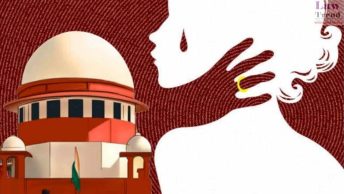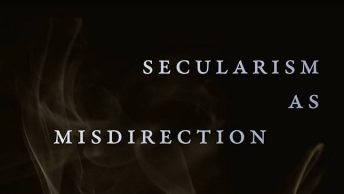With the Prime Minister, Dr.Manmohan Singh having been hospitalised, he will be virtually absent from office on health grounds for a month at least. My friend, Manoj Mitta has suggested in Today’s Times of India (Unlike U.S., India has no 2-in command) that Article 74 of the Constitution has a lacuna in that it does not provide for a No.2 in the Council of Ministers to officiate as the PM in his absence. However, he adds after reproducing Article 74, as follows: “Therefore, the cabinet can carry on even when the Prime Minister is temporarily absent”. A literal reading of Article 74 does not sustain Manoj’s position. I am also inclined to disagree with him that the Prime Minister is only first among equals in his cabinet consisting of elected representatives. I outline my take as follows:
1. There is no lacuna in Art.74: Having provided in Art.65 that the Vice-President can officiate as President in the absence of the President, did the Constitution-makers forget to include a similar provision in the case of the Prime Minister? In the U.S., the electors of the President know who is the Vice-Presidential candidate, who will take over as the President if there is a vacancy. Therefore, the U.S.Constitution provided for such a succession. In India, which follows Parliamentary democracy, voters do not know who the Prime Minister will be after the elections, let alone his successor, in case of a sudden absence of the PM. Therefore, our Constitution-makers wisely refrained from copying the American model. Instead they worded Article 74 to require that there ought to be a Council of Minister headed by the Prime Minister all the times. That is, the two ingredients of Article 74 are inseparable twins. The Constitution does not envisage an absentee Prime Minister. Like every one, Manoj agrees that the PM is absent, and will be absent for a month at least. Therefore, the right course would be for the PM to resign, and let his successor be sworn in as the next PM, in accordance with what his party decides.
2. Why does our Constitution not recognise an officiating PM?: The answer lies in Manoj’s own story where he claims, apart from other things, the PM also has access to the nuclear button. Can such a responsibility be entrusted to someone who is just officiating – whether legally or through a formal/informal mechanism, as Mr.Pranab Mukherjee does now? In 1948, the question of access to nuclear button might not have arisen, but the Constitution-makers did know that the office of the PM is endowed with serious and onerous responsibilities, and it requires a full-fledged leader who enjoys the confidence of the House. An officiating PM cannot enjoy the confidence of the House, even if the Constitution had sanctioned it. Therefore, they expected the ruling party or coalition to quickly move in, elect a new leader, and ask that leader to accept the office of the PM, in case there is a sudden vacancy. A vacuum in the office of the PM, even for a few hours, is a serious matter. Remember 1984 when the nation took a few hours to choose Indira Gandhi’s successor? What we are likely to witness is vacuum for several days, which is ominous. Here, precedents may be cited – Vajpayee when he was hospitalised or even MGR when he went to the U.S. for treatment as the Chief Minister for nearly a month. Well, these were flawed precedents which did not correctly reflect the spirit of Article 74.
3. Is the Prime Minister first among the equals? A bare reading of the Constituent Assembly Debates on December 30, 1948, when it discussed draft article 61 (corresponding to the current article 74) suggests that the office of the Prime Minister was conceived as the supreme one, and an inevitable concomitant of Parliamentary democracy. One Member K.T.Shah wanted deletion of the words “with the Prime Minister at the head’ from draft Article 61(1), but the amendment was rejected after a lengthy reply from Ambedkar.
Ambedkar said:
“Supposing you have no Prime Minister; what would really happen? What would happen is this, that every Minister will be subject to the control or influence of the President. It would be perfectly possible for the President who is no adidem with a particular Cabinet, to deal with each Minister separately singly, influence them and thereby cause disruption in the Cabinet. Such a thing is not impossible to imagine. Before collective responsibility was introduced in the British Parliament you remember how the English King used to disrupt the British Cabinet. He had what was called a Party of King’s Friends both in the Cabinet as well as in Parliament. That sort of thing was put a stop to by collective responsibility. As I said, collective responsibility can be achieved only through the instrumentality of the Prime Minister. Therefore, the Prime Minister is really the keystone of the arch of the Cabinet and unless and until we create that office and endow that office with statutory authority to nominate and dismiss Ministers there can be no collective responsibility.
“…I have not been able to understand why, for instance, Prof. K. T.Shah thinks that the Prime Minister ought to be eliminated.If I understood him correctly, he thought that he had no objection if by convention a Prime Minister was retained as part of the executive. Well, if that is so, if Prof. K. T.Shah has no objection for convention to create a Prime Minister, I should have thought there was hardly any objection to giving statutory recognition to the position of the Prime Minister.
In England, too, as most students of constitutional law will remember, the Prime Minister was an office which was recognised only by convention. It is only in the latter stages when the Act to regulate the salaries of the Minister of Cabinet was enacted. I believe in 1939 or so, that statutory recognition was given to the position of the Prime Minister, Nonetheless, the Prime Minister existed.
“I want to tell my friend Prof. K. T. Shah that his amendment would be absolutely fatal to the other principle which we want to enact, namely collective responsibility. All Members of the House are very keen that the Cabinet should work on the basis of collective responsibility and all agree that is a very sound principle. But I do not know how many Members of the House realise what exactly is the machinery by which collective responsibility is enforced.Obviously, there cannot be a statutory remedy. Supposing a Minister differed from other Members of the Cabinet and gave expression to his views which were opposed to the views of the Cabinet, it would be hardly possible for the law to come in and to prosecute him for having committed a breach of what might be called collective responsibility. Obviously,there cannot be a legal sanction for collective responsibility. The only sanction through which collective responsibility can be enforced is through the Prime Minister. In my judgment collective responsibility is enforced by the enforcement of two principles. One principle is that no person shall be nominated to the Cabinet except on the advice of the Prime Minister.
“Secondly, no person shall be retained as a Member of the Cabinet if the Prime Minister says that he shall be dismissed. It is only when Members of the Cabinet both in the matter of their appointment as well as in the matter of their dismissal are placed under the Prime Minister, that it would be possible to realise our ideal of collective responsibility. I do not see any other means or any other way of giving effect to that principle. Supposing you have no Prime Minister; what would really happen? What would happen is this, that every Minister will be subject to the control or influence of the President. It would be perfectly possible for the President who is no adidem with a particular Cabinet, to deal with each Minister separately singly, influence them and thereby cause disruption in the Cabinet. Such a thing is not impossible to imagine.
“Before collective responsibility was introduced in the British Parliament you remember how the English King used to disrupt the British Cabinet. He had what was called a Party of King’s Friends both in the Cabinet as well as in Parliament. That sort of thing was put a stop to by collective responsibility. As I said, collective responsibility can be achieved only through the instrumentality of the Prime Minister. Therefore, the Prime Minister is really the keystone of the arch of the Cabinet and unless and until we create that office and endow that office with statutory authority to nominate and dismiss Ministers there can be no collective responsibility.”
Not all of Ambedkar’s fears may be relevant now. But they help us to understand why the Constitution-makers considered the office of the Prime Minister and the President differently, and did not provide for an officiating Prime Minister.






VV,
Your argument, I suppose, could technically apply to any short period of absence including any time when the PM might be away on tour and cannot be accessed right away. If we are talking of that, precedents go all the way to the first PM, Nehru (I believe Shastri used to officiate in his absence). The question then is whether short periods of physical absence (where the probability of his return is extremely strong if not certain) amounts to a cabinet without the PM at its head. Given that Our own system is based on the English model, questions of this sort ought to be resolved by reference to convention, should they not? In Britain, the convention is for the Chancellor of the exchequer to preside over the cabinet in the absence of the PM. Moreover, the CA was aware of this practice and could not conceivably have expected art.74 to come in the way of a similarly temporary arrangement in India. We may not have a designated #2 but we do have a process now accepted – a convention in other words – to chooose one to take that place. A senior member of the cabinet chosen by the party and accepted by the remaining members of the cabinet presides over it. So I do not quite see why it should be a problem.
Dilip,
The question is not just who presides over the cabinet in PM’s absence. I don’t think a similar exact precedent (that is a PM being inaccessible for several days) has arisen earlier at the Centre. Does convention help Mr.Mukherjee to decide who is in the Cabinet or out? The DMK is threatening to pull out. Can Mr.Mukherjee decide on his own? Can the affairs of the State be suspended for a week or a month? Or take MGR’s long absence for his treatment in the U.S. in 1984, when he was not even mentally alert. Even if there is such a convention (on the basis of a few precedents and because all parties felt bound by it), I think, it still fails the Ivor Jennings’ test of reason. Is there a reason for such a rule (see my Aug.15, 2008 post)? I am unable to think of any convincing reason, except that we need to avoid a swearing-in which has to be again reversed once the PM gets back to normalcy. Can this reason be cited to suspend the import of Art.74? I doubt.
Fascinating read!